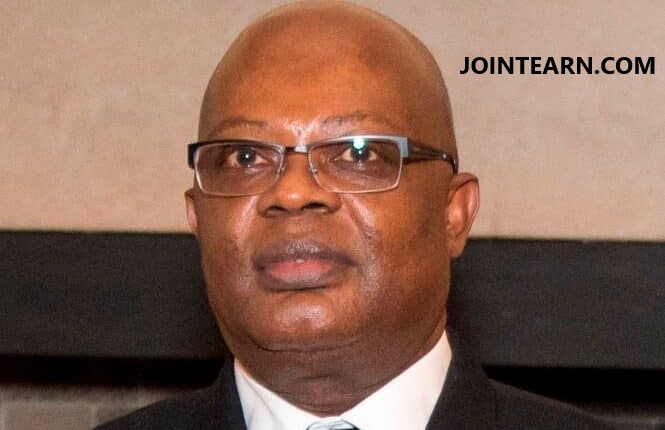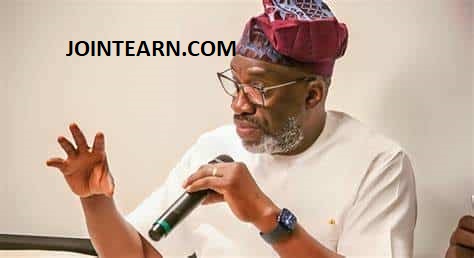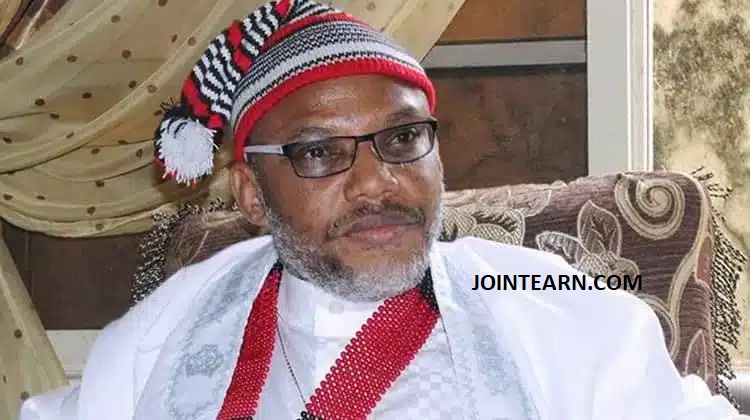Governor Ibas of Rivers State has issued a stern warning to protesters in the state, urging them to exercise restraint and caution amid growing unrest over the actions and policies of Governor Siminalayi Fubara’s administration. The governor’s remarks came in the wake of increasing public demonstrations calling for a reversal of certain government decisions, particularly those related to the state’s economic policies and public welfare initiatives.
In a public statement delivered earlier this week, Governor Ibas expressed his concern over the potential consequences of the ongoing protests, acknowledging that while the right to peaceful assembly and dissent is enshrined in the Constitution, the actions of some protesters were testing the patience and will of the state government.
Governor Ibas Reacts to Rising Protests
The protests, which began as peaceful demonstrations calling for a review of Governor Fubara’s policies, have grown in both size and intensity over the past few weeks. The primary grievance of the protesters appears to center around the administration’s handling of issues such as unemployment, rising living costs, and the perceived lack of tangible development projects since Fubara assumed office.
In his statement, Governor Ibas expressed sympathy for the economic struggles of the people but warned that the nature of the protests was beginning to cross the line from legitimate dissent to outright disruption.
“I understand the frustration of our people, and as a government, we are committed to improving the welfare of every Rivers citizen. However, we cannot allow the situation to escalate into a breakdown of law and order,” Governor Ibas stated. “This protest, while rooted in legitimate concerns, is testing the will of the government to maintain peace and stability in our state. I urge all protesters to exercise restraint and to consider the broader impact of their actions.”
The Heart of the Protest
The protests, which have been taking place across various parts of Rivers State, particularly in Port Harcourt, the state capital, have seen thousands of demonstrators marching through the streets, holding placards, and chanting slogans against what they perceive as a failure by the Fubara administration to live up to the promises made during the election campaign.
Key among the protesters’ demands are calls for immediate action on unemployment and poverty alleviation. Many demonstrators have pointed to the increasing hardship faced by ordinary people as a result of rising food prices, high transportation costs, and stagnant wages, exacerbated by inflation and a lack of jobs. Additionally, concerns over the slow pace of infrastructural development in the state have also been a significant point of contention.
The protesters have also accused the governor of not taking adequate steps to address the widespread issue of insecurity in the region, which has led to several communities living in fear. The lack of effective police presence in rural areas and the growing power of criminal gangs have further fueled anger towards the state government.
A Call for Dialogue
Governor Ibas has reiterated his belief in dialogue as the best avenue for resolving the issues raised by the protesters. In his statement, he called on leaders of the protest movement to come forward for a meeting with the state government to discuss their grievances and explore potential solutions.
“We are open to constructive dialogue with those leading the protests,” the governor said. “We must work together to find ways to address the challenges facing our state. Our door remains open for discussions, but we cannot allow anarchy to reign in our state. Let us talk, let us work together for a better Rivers State.”
He also acknowledged that not all of the protesters may be acting with peaceful intentions, hinting that some individuals or groups might be taking advantage of the situation to pursue other, less noble goals. He called on law enforcement agencies to remain vigilant but to also ensure that their actions do not unnecessarily escalate tensions.
Public Response to Governor Ibas’ Statement
While some citizens have welcomed the governor’s call for dialogue, others have expressed skepticism about the sincerity of his administration in addressing their concerns. Many protesters have accused the state government of being dismissive of their grievances and criticized the lack of substantial action on issues that directly affect their daily lives.
A leader of one of the protest groups, Chika Agbara, stated, “We’ve heard these promises before. We’ve seen the empty words and the lack of action. The government needs to show real commitment to the people. Dialogue is fine, but we need concrete steps, not more talk.”
Agbara, who has been active in organizing protests in Port Harcourt, emphasized that the protests would continue until the government shows real progress in addressing their concerns. “We are not backing down. The government needs to understand that we will not stop until we see the changes that we deserve.”
On the other hand, some political analysts have warned that continued protests could lead to further instability, especially as tensions rise between the protesters and the state government. They also pointed out the risks posed by violent clashes between protesters and security forces, which could harm the reputation of the administration and make it more difficult to implement future reforms.
Next Steps for the Government
As the protests show no signs of abating, Governor Ibas has assured the people of Rivers State that his administration will not shy away from implementing measures to address the issues raised by the protesters. In his statement, he acknowledged that the state was facing significant challenges but assured residents that the government was working tirelessly to improve the economic situation and address the security concerns.
“We will continue to work on policies that will create jobs, improve infrastructure, and restore peace and security in our communities. It is a difficult task, but we are committed to it,” he said.
He also urged political leaders and civil society organizations to play a constructive role in the peacebuilding process, emphasizing that collaboration between all stakeholders was essential for the state to move forward.
Conclusion
The ongoing protests in Rivers State present a complex challenge for Governor Ibas and the administration of Governor Fubara. While the protests reflect legitimate concerns about governance, economic hardship, and insecurity, the potential for escalation remains a real concern.
As both sides prepare for future negotiations, the call for restraint and dialogue will likely be crucial in ensuring that the situation does not spiral out of control. The coming weeks will be critical in determining whether the state government can address the protesters’ demands or whether the situation will continue to test the will of the government and the patience of the people.












